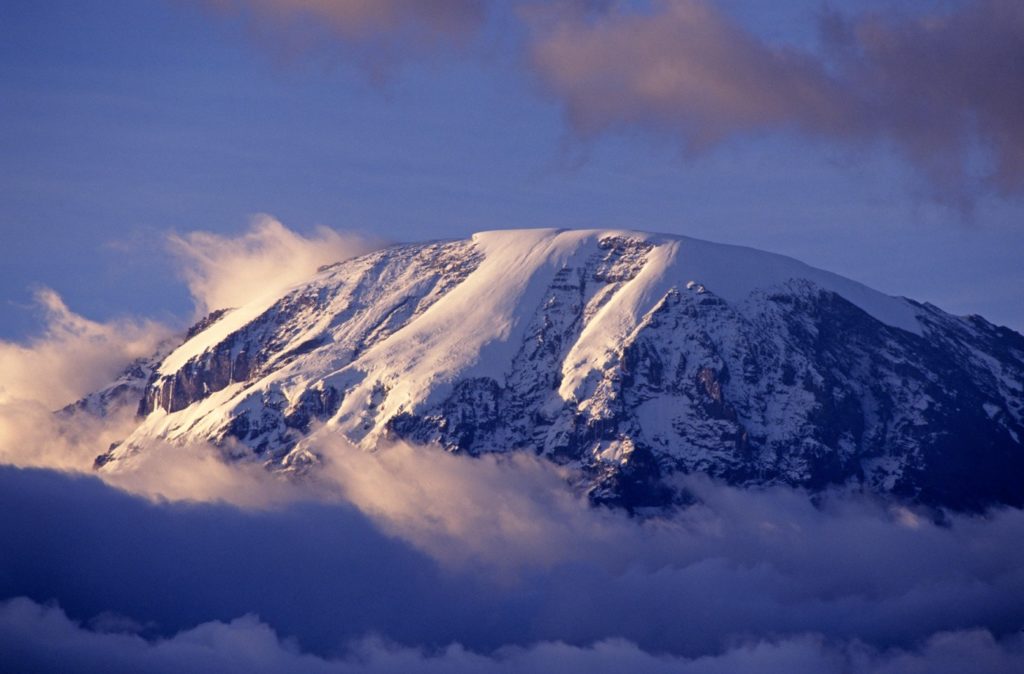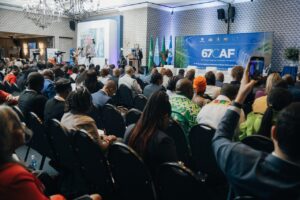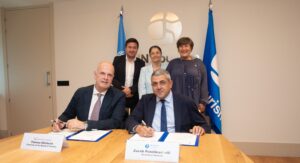How a tiny African non-profit and its Partner climbing companies are taking steps to help the lives of thousands of Kilimanjaro guides and porters during this virus crisis.
As I write this, a heavy full moon is inching its way towards the jagged skyline of the Rocky Mountains.
The same full moon that lit my way, and that of my guides, porters and fellow climbers the night November 17, 2013, as we made our way to the top of Mount Kilimanjaro.
Every year some 50,000 people attempt to summit the mountain. About a third or more don’t quite make it. Whether or not you stand under that triumphant sign has a great deal to do with the quality of your guide and porter team.
The minimally-staffed but very proactive not-for-profit Kilimanjaro Porter’s Assistance Project or KPAP was formed in 2003 to attend to the needs of porters who annually make multiple treks up this magnificent mountain.
In times past, those porters, many, if not most, of whom come from farming backgrounds, didn’t always have the proper clothing or gear, or even food to sustain them as they carried often huge loads of tourist gear to the camps.
KPAP has worked hard to change all that through a variety of projects, including a Partner for Responsible Travel Program in which all companies are welcome to participate. These Partner companies have committed not only to improved porter conditions but also to being monitored as to whether or not they actually maintain those conditions. It’s an extraordinary job. But it has paid off in better conditions for the porters who often have done the most work for the least pay.
Porters are among the most vulnerable as employment is tied to seasonal fluctuations driven by the best times of the year to climb the mountain, with very few climbers during the annual rainy periods. But with the prospect of fewer or even no climbers this season, they don’t have the types of benefits Westerners might take for granted: severance, paid leave, unemployment insurance or even health coverage. Since most porters have no access to the Internet, they are also not yet fully aware of what is happening in the world outside Tanzania. Because of that lack of current information, unfortunately many porters currently assume that there will indeed be a climbing season this year.
Not only is a tourist climbing season for Kilimanjaro highly unlikely (as they are at Everest and the rest of the great treks), these porters are largely unprepared for what has already struck much of the rest of the world. Porters constitute the most marginalized of the mountain community that makes this climb possible for the rest of us. Many are at high risk. Not only the porters, but the hundreds of thousands of family members who count on the seasonal income that their climbing work provides.
KPAP has been hard at work organizing conference calls with KPAP Partner companies. There were several immediate needs of these companies who hire these porters, some of which are small and growing firms that may struggle for want of climbing income. KPAP has already distributed available resources, such as small business survival handbooks and best practice suggestions to deal with Covid-19.
If climbing companies fail, guides and porters don’t work. Many quality KPAP Partner companies are offering creative ways to keep climbers committed, even if that climb doesn’t happen this season, as a way to retain essential funds to stay afloat.
This is the hardest part: how to inform, engage, educate and protect the guide and porter community, without which there would be no Kilimanjaro climbing season. Those porters’ incomes provide support for vast numbers of people in many communities spread out around Kilimanjaro and even farther afield.
KPAP has been working with the Partner companies to collaborate, identify and respond to the needs of their communities of guides and porters in the coming months. Best safe practices concerning Covid-19 were promptly translated into Swahili, and sent out to all of the Partner companies. KPAP also shared ways to conserve money.
Since most porters don’t have iPhones, communications can be a challenge, but KPAP organized with the Partner companies to ensure the porters had critically important safety information. Those Partner companies have selected a company representative to communicate with their mountain crew, bits at a time, painstakingly via phone messages.
There are thousands of porters whose subsistence farming efforts are what they turn to when they don’t have climbing work. To help, KPAP is working with Partner companies to create information, guidance and assistance to better ensure that those porters have both food and adequate income when it becomes clear that there will likely be no climbing season this year. For many, that lack of work will constitute the first genuine proof that the Coronavirus is real, the tourists aren’t coming, and they have to find alternate sources of income.
KPAP is also deeply concerned with the health and future viability of its Partner companies. The tourist industry that is in part driven by this popular mountain raised $2.43 billion for the year, up from $2.19 billion in 2017. If KPAP member companies fail, so do the many people they employ, and the revenues that they can potentially bring this country. It’s essential that these companies, from small to large, weather the storm, because their relative viability has far-reaching implications.
To that end, KPAP has been and continues to be actively soliciting what these companies need to stay viable as their needs are constantly changing.
Organizations such as the Exodus Travels Foundation have been discussing ways to support KPAPs necessary redirection to help in these four areas of concern:
1. Health & Safety — to protect against and prevent the spread of CV19.
2. Budgeting and Money Management — to conserve finances.
3. Alternative income generating projects — to provide different work capacities as employment with Kilimanjaro climbs may not be possible for an extended period of time.
4. Farming practices — to improve farming skills and increase yields.
There will be an “after.” Right now, the tiny crew at KPAP is working hard to make sure that the “after” is as happy as it can be. When the world finds itself in a new normal, there will still be tourists. There will still be climbers.
Tanzania will need tourism. KPAP is hard at work ensuring that when the climbers come, there will be climbing companies staffed with well-trained and well-prepared guides and porters so that you and I too, can stand under that magic green Uhuru sign.
Author: Julia E Hubbel Prize-winning author, veteran, adventure traveler, animal masseuse, athlete, international traveler/speaker. Perpetually curious.
Note: This Article was first published on medium.com








